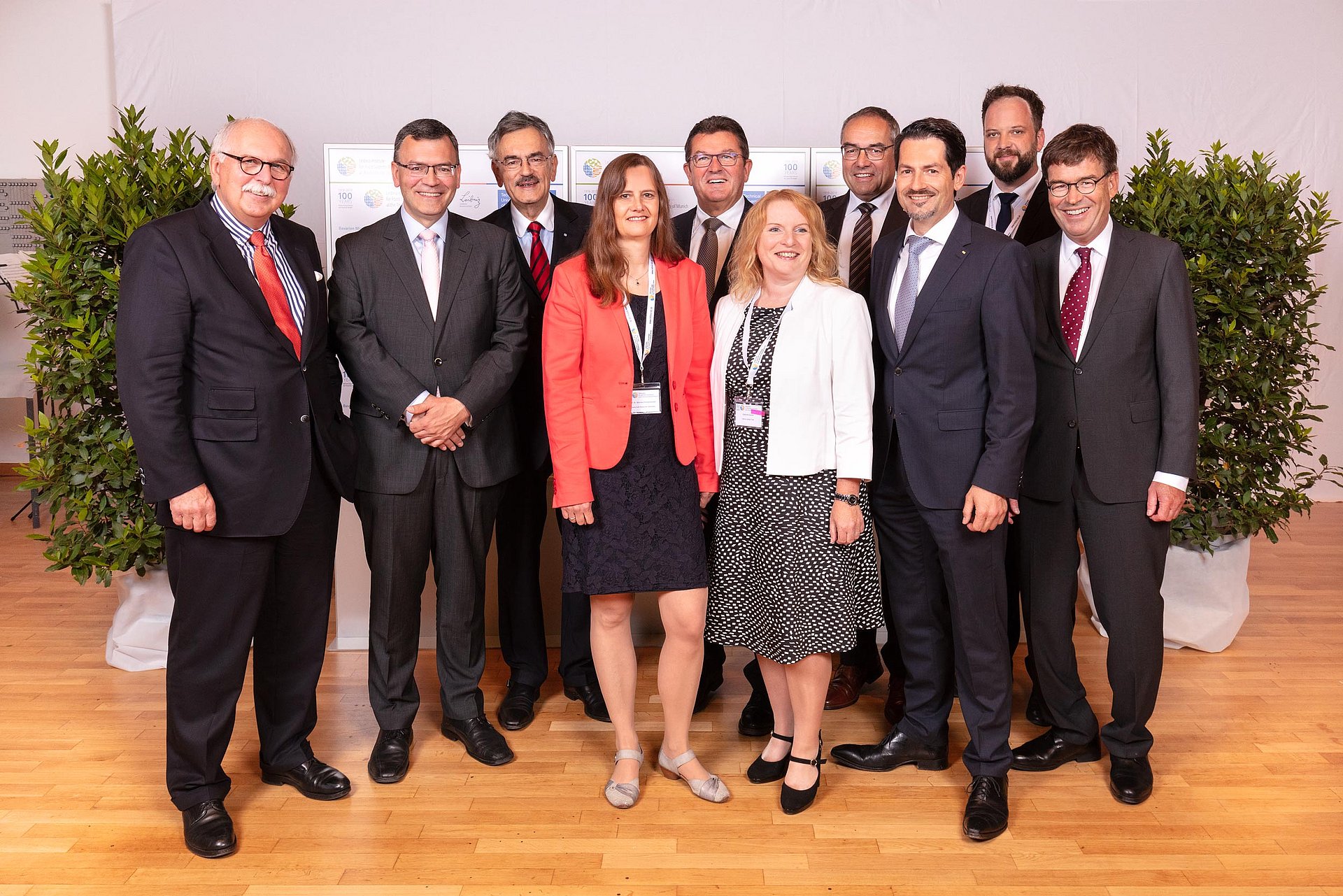Leibniz-Institute at Technical University of Munich celebrates 100th anniversary
Research for healthy and delicious nutrition

The 100 years of the Leibniz-Institute's history reflect the development of food and nutrition research in Germany during the 20th and 21st centuries. Founded by the Royal House of Wittelsbach in 1918, the Institute's initial mission was to improve the nutrition of the population in times of war-related food shortages. Today the Institute combines basic biomolecular research and bioinformatics analysis methods with high-performance analytics to decode the complex ingredient signatures, from raw materials all the way to the final food products, and to explain their function as biologically active molecules in terms of human biology.
New directions
Prof. Dr. Thomas F. Hofmann has led the newly organized Leibniz-Institute since September 2017. He is also the TUM Senior Vice President for Research and Innovation and chair of Food Chemistry and Molecular Sensory Science. Biological system-based approaches in food and nutrition research are pursued to align the ingredient signatures and functional profiles of foods with nutrition and health requirements as well as with the sensory preferences of the consumer. Products resulting from this research will help supply the population of the future sustainably and adequately with food that promotes health and also tastes good. Furthermore, the newly gained scientific findings are to be used in the development of personalized nutrition concepts which will for example help people with food intolerances stay healthy without restricting quality of life.
“With its avant-garde research program, exactly 100 years after being founded the Institute is beginning to grow well beyond the boundaries of its previous core discipline, Food Chemistry. Food systems biology opens a new and expanded horizon for the TUM Freising-Weihenstephan campus, one which includes our medical research and as such promises international brilliance,” says TUM president Wolfgang A. Herrmann. He added that this has all been made possible by the outstanding support of Bavarian state politicians, in particular by precinct representative Dr. Florian Herrmann and Ilse Aigner, responsible until recently as minister of Economics. As president Herrmann emphasized, the rapid realization of new construction at the Institute is part of the business basis of the agreements with the State of Bavaria.
The Bavarian State Ministry of Economic Affairs, Energy and Technology is convinced of the potential of the Leibniz-Institute. State minister Franz Josef Pschierer: “Today we look back on 100 years of successful food and nutrition research. We will energetically support the continuing development of the Leibniz-Institute and will initiate structural renovations all the way to food systems biology. Therefore we will provide almost 17 million Euros for investment in a modern research infrastructure. In doing so we are further expanding the strong position of the Institute as a driver of innovation.”
Interdisciplinary Research
The interdisciplinary character of the Leibniz-Institute is evident in the diversity of its talents in Food Chemistry, Nutrition Science, Human Biology, Biotechnology and Bioinformatics. Leibniz president Matthias Kleiner regards this as an important breeding ground for application-oriented and cutting-edge research: “Consolidating interdisciplinary, complementary research disciplines at a single location in an idea factory empowers translational research for the benefit and good of society. The new orientation of the Institute together with its new Director is entirely in keeping with the intent of the Leibniz Association. This makes me confident that the Institute's work will be highly beneficial.”
Hofmann greatly appreciates the trust placed in the Institute and looks to the future with an equal sense of optimism. “The newly created configuration of the Leibniz-Institute and its expanded focus beyond the investigation of individual food ingredients to include a systemic approach is a significant gain for research at the Weihenstephan site. In close integration with the TUM reference disciplines, new local synergies will emerge which will further increase the site's international standing.”